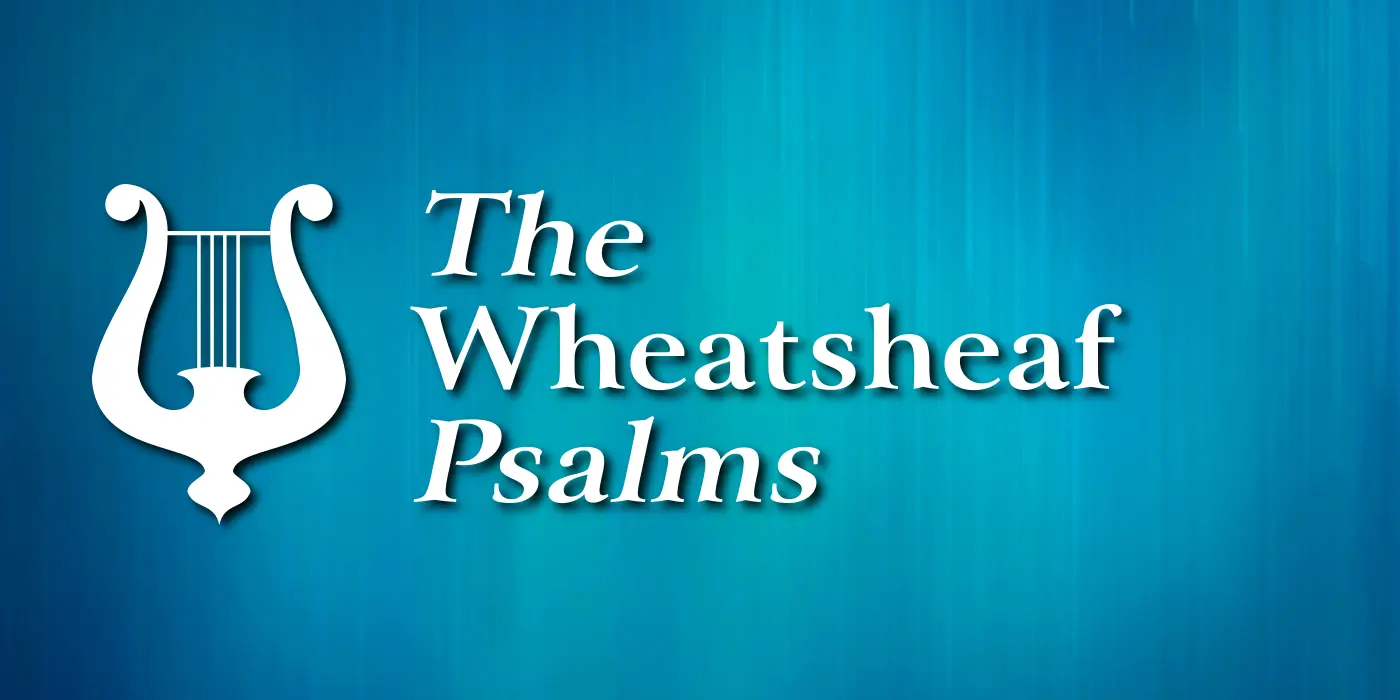
The Wheatsheaf Psalms is a collection of simple psalms for use throughout the Church’s year, Sunday by Sunday and beyond. It uses texts from The Abbey Psalms and Canticles and the 2024 Lectionary for Mass now in use in England and Wales, and Scotland.
Most of the settings in the collection have been parish-tested over many years and adapted for the 2024 Lectionary. Others are newly composed.
Singing psalms, simply

The Wheatsheaf Psalms settings are designed for parishes with limited resources or who are just starting to sing the psalms. If you only have a cantor and maybe a guitarist, you can sing these psalms. They are simple to learn but with satisfying musical interest for more experienced musicians.
The verses are set to tones which are often musical progressions or mirror the melodies of the responses themselves. The words of the verses are printed underneath the melody, so it’s always clear when to change note – no need to worry about finding the underline or omitting bars for shorter verses!
The Wheatsheaf Psalms doesn’t have a unique melody for every single psalm, so you don’t have to learn a new setting each week. Many psalms reoccur throughout the church’s year with different responses or selections of verses. Where the psalms have the same ‘mood’, the settings are based upon the same melody.
Common Psalms and Common Responses are the unsung heroes of the Lectionary – psalms you can use throughout a season. In The Wheatsheaf Psalms, they are an integral part of our collection. Learn more about the Common Psalms and how to use them.
Publications
The Wheatsheaf Psalms: The Collection – £12.50
PDF download. The complete collection for Years A, B, C and the Easter Triduum
The Wheatsheaf Psalms: Year A – £4.50
PDF download
The Wheatsheaf Psalms: Year B – £4.50
PDF download
The Wheatsheaf Psalms: Year C – £4.50
PDF download
The Wheatsheaf Psalms: The Easter Triduum – £1.50
PDF download
100% of the proceeds from the sale of these collections will go to our favourite charities.
Payments are handled by Stripe. Once your payment has been confirmed, we will send you an email with your purchase attached as a PDF. We aim to send this within one working day. This process is not yet automated so we appreciate your patience.
Sample page
Audio clips
Psalm 17(16) – When I awake with bridge
Psalm 19(18) – Your words, O Lord, are spirit and life
Psalm 22(21) – My God, why have you forsaken me?
Psalm 27(26) – The Lord is my light and my salvation
Psalm 63(62) – For you my soul is thirsting
Psalm 66(65) – Cry out with joy to God with bridge
Psalm 80(79) – Bring us back, O God with bridge
Psalm 98(97) – All the ends of the earth
Psalm 103(102) – The Lord is compassionate and gracious
Psalm 104(103) – Send forth your Spirit, O Lord with bridge
Psalm 130(129) – With the Lord there is mercy
